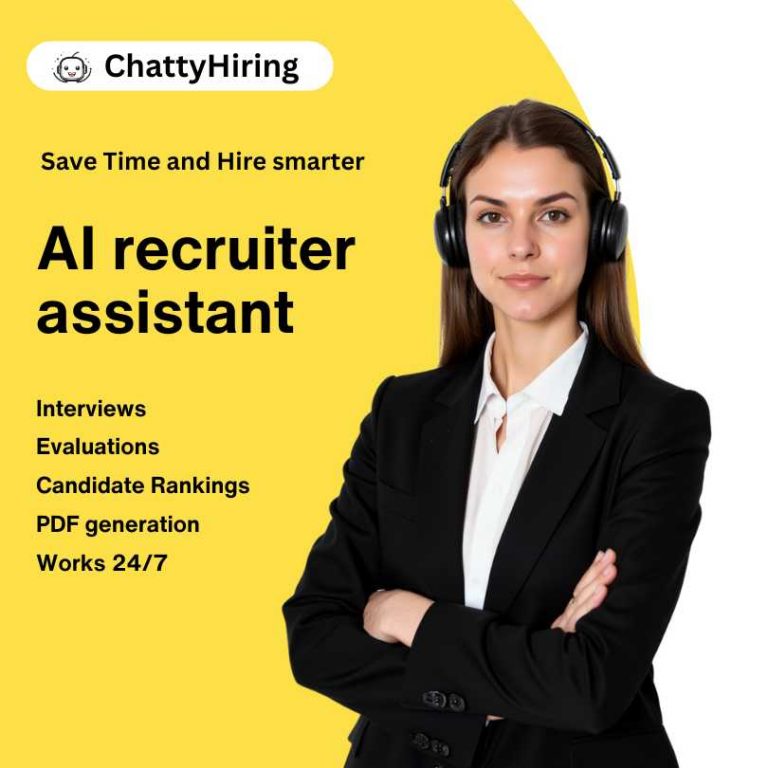In today’s fast-paced and competitive job market, the adoption of innovative recruitment technology has become a game-changer for organizations looking to secure top talent efficiently and effectively. Imagine a recruitment process where data-driven decisions, personalized interactions, and seamless automation work together seamlessly to attract the best candidates. As the recruitment landscape continues to evolve, staying ahead of the curve with cutting-edge technology is essential for success. Let’s explore how embracing innovative recruitment technology can revolutionize the way companies attract, engage, and hire the best-fit candidates for their teams.
Understanding innovative recruitment technology
Innovative recruitment technology has completely transformed the way organizations attract and hire top talent. By leveraging advanced tools and platforms, recruiters can now streamline their processes and make data-driven decisions that result in better hires.
Benefits of implementing innovative technology in recruitment
Increased Efficiency: Automation and AI-powered tools help in sifting through large volumes of applications quickly.
Improved Candidate Experience: Innovative platforms offer seamless communication and personalized interactions, enhancing the overall candidate experience.
Enhanced Decision-Making: Data analytics provide valuable insights that assist recruiters in making informed hiring decisions.
Cost Savings: By automating repetitive tasks, companies can save valuable time and resources in their recruitment efforts.
By embracing innovative recruitment technology, organizations can stay ahead of the competition and access a wider pool of qualified candidates while ensuring a more efficient and effective hiring process.
The evolution of recruitment technology
In the rapidly evolving landscape of recruitment, the adoption of innovative recruitment technology has become paramount for staying competitive in attracting top talent. Let’s delve into the evolution of recruitment technology and its impact on modern talent acquisition strategies.
Traditional recruitment methods vs. innovative technology
Traditional methods often involve manual screening processes that are time-consuming and prone to bias.
Innovative recruitment technology utilizes AI algorithms to analyze candidate data and provide insights into potential fits for roles.
Automation tools can significantly speed up the recruitment process, allowing recruiters to focus on building relationships with candidates.
Key technological advancements in the recruitment industry
AI-Powered candidate matching: Technology can now match candidate profiles with job requirements more accurately, saving time for recruiters.
Video interviewing platforms: Virtual interviews have become mainstream, enabling remote hiring processes and increasing accessibility for candidates globally.
Mobile recruitment apps: Mobile-friendly applications streamline the application process, catering to the on-the-go nature of modern job seekers.
The integration of these technological advancements into recruitment processes has brought about a paradigm shift in how companies attract and hire talent, paving the way for a more efficient and data-driven approach to staffing.

Implementing innovative technology in talent acquisition
As organizations strive to optimize their recruitment processes, the adoption of innovative recruitment technology has emerged as a game-changer in talent acquisition. Let’s explore how companies can leverage cutting-edge tools and software to enhance their hiring strategies.
Tools and software for streamlining recruitment processes
Applicant tracking systems (ATS): ATS platforms automate the collection and management of candidate data, streamlining the hiring process from application to onboarding.
AI-Powered candidate assessment platforms: These tools analyze candidate information to predict job fit and success potential, enabling recruiters to focus on high-potential candidates.
Automated interview scheduling platforms: Solutions like Calendly or HireVue simplify the interview scheduling process, saving time for both recruiters and candidates.
Leveraging AI and automation for smarter candidate screening
AI algorithms can analyze vast amounts of applicant data to identify top candidates based on predefined criteria.
Automation streamlines repetitive tasks like resume screening, allowing recruiters to dedicate more time to building relationships with potential hires.
By effectively integrating these innovative technologies into their talent acquisition strategies, companies can improve efficiency, reduce time-to-hire, and ultimately secure the best-suited candidates for their roles.
Enhancing candidate experience with technology
In the realm of recruitment, providing an exceptional candidate experience is crucial for attracting top talent. Innovative recruitment technology plays a pivotal role in enhancing the overall candidate journey and ensuring a positive impression of the hiring organization.
Personalization and customization in recruitment interactions
Tailored Communication: Automated messaging platforms can deliver personalized communication to candidates, addressing their specific needs and preferences.
Customized Application Processes: Technology allows for the creation of interactive application forms that adapt to individual candidate profiles, simplifying the application process.
Targeted Job Recommendations: AI algorithms can suggest relevant job opportunities based on a candidate’s skills and experience, enhancing their job search experience.
Improving communication through innovative platforms
Virtual reality (VR) interviews: Some companies are utilizing VR technology to conduct immersive and engaging interviews, providing candidates with a unique experience.
Chatbots for real-time support: Chatbots can offer instant assistance to candidates regarding application status, interview schedules, and other inquiries, improving transparency and responsiveness.
By incorporating innovative technology to personalize interactions and improve communication throughout the recruitment process, organizations can establish strong connections with candidates, boost their employer brand, and ultimately attract top talent effectively.

Overcoming challenges and misconceptions
Embracing innovative recruitment technology comes with its unique set of challenges and misconceptions that need to be addressed for successful implementation and utilization within organizations. Let’s delve into common concerns and how to overcome them effectively.
Addressing concerns about bias and fairness in AI recruitment
Transparency in Algorithms: Organizations should ensure transparency in the algorithms used for candidate screening and selection to prevent biases.
Regular Auditing and Monitoring: Continuous monitoring and auditing of AI systems can help identify and rectify any potential biases that may arise.
Human Oversight: Integrating human oversight into the AI recruitment process can provide checks and balances to ensure fairness and equity.
Training HR teams to utilize innovative technologyeffectively
Continuous Training Programs: Regular training sessions can equip HR teams with the necessary skills to leverage technology effectively in recruitment processes.
Collaboration with Tech Experts: Collaborating with technical experts can help HR professionals understand the nuances of innovative recruitment technology and how to optimize its usage.
Feedback Mechanisms: Establishing feedback loops where HR teams can share their experiences and suggestions for improving technology adoption can enhance overall efficiency.
By proactively addressing concerns about bias, fairness, and ensuring proper training for HR teams, organizations can maximize the benefits of innovative recruitment technology while mitigating potential risks or challenges associated with its implementation.
Future trends in recruitment technology
The landscape of recruitment continues to evolve rapidly, driven by advancements in technology that aim to revolutionize the way organizations attract and hire talent. Let’s explore some of the future trends in innovative recruitment technology that are set to shape the industry.
Predictive analytics and machine learning in talent acquisition
Data-driven decision making: Predictive analytics tools can analyze large datasets to forecast future trends in recruitment, enabling proactive decision-making.
Behavioral analysis: Machine learning algorithms can assess candidate behavior patterns to predict job fit and cultural alignment within organizations.
Performance predictions: Predictive models can anticipate candidate performance based on historical data, aiding in selecting the most promising hires.
The role of virtual reality and augmented reality in recruitment processes
Immersive recruitment experiences: Virtual reality technologies offer immersive experiences like virtual office tours or job simulations, giving candidates a firsthand look into company culture.
Interactive assessments: Augmented reality platforms can facilitate interactive assessments and skill evaluations, providing a more engaging recruitment process for candidates.
Remote onboarding: AR technology can assist in remote onboarding processes by creating virtual environments for new hires to familiarize themselves with company policies and procedures.
By embracing these futuristic trends in recruitment technology, organizations can gain a competitive edge in attracting top talent, enhancing candidate experiences, and optimizing their overall recruitment strategies for success in the digital age.
How can innovative recruitment technology benefit small businesses?
Innovative recruitment technology levels the playing field for small businesses by offering cost-effective solutions to streamline hiring processes, attract top talent, and compete with larger organizations on a more equal footing.
Is there a risk of bias in AI-powered recruitment technology?
While AI-powered recruitment technology can enhance efficiency and accuracy, there is a risk of bias if algorithms are not carefully designed and monitored. Organizations should prioritize transparency and fairness in their AI recruitment strategies to mitigate bias concerns.
How can virtual reality enhance the candidate experience in recruitment?
Virtual reality can provide candidates with immersive experiences, such as virtual office tours or interactive job simulations, allowing them to envision themselves within the company culture and enhancing their overall engagement in the recruitment process.
What steps can organizations take to ensure data security in recruitment technology?
Organizations can safeguard sensitive candidate data by implementing robust data encryption protocols, access controls, and regular security audits on their recruitment technology platforms to prevent unauthorized access and data breaches.
How can HR teams effectively transition to using innovative recruitment technology?
HR teams can adapt to using innovative recruitment technology by providing comprehensive training programs, fostering collaboration between HR and tech experts, and encouraging continuous feedback loops to optimize technology utilization and enhance recruitment outcomes.
-

A passionate advocate for the future of HR innovation. With expertise in leveraging AI to revolutionize recruitment processes, Carlos has a clear vision: empower HR teams while creating meaningful candidate experiences.
View all posts



